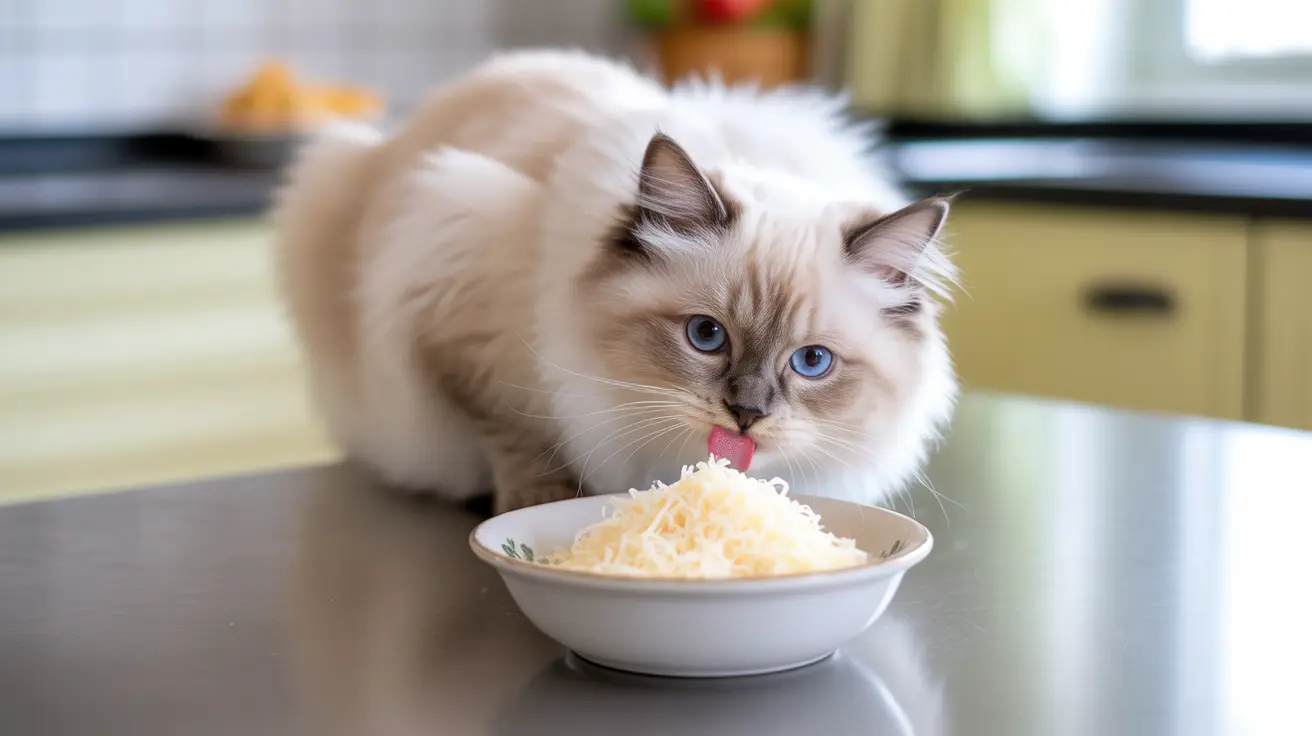If you've ever wondered whether sharing a sprinkle of parmesan cheese with your feline friend is safe, you're not alone. While cats might show interest in this savory treat, understanding the implications of feeding parmesan cheese to cats is crucial for their health and well-being.
As obligate carnivores, cats have specific dietary needs that differ significantly from humans. Let's explore whether parmesan cheese can fit into your cat's diet and what risks you should be aware of.
Understanding Cats and Dairy Products
Most adult cats are lactose intolerant, having lost the enzyme needed to digest dairy products after weaning. While parmesan cheese contains less lactose than other dairy products, it still poses potential risks to your feline companion.
Even small amounts of dairy can cause digestive issues in cats, ranging from mild discomfort to more serious complications.
The Truth About Parmesan Cheese and Cats
Parmesan cheese isn't toxic to cats, but it's far from an ideal treat. It's high in fat, calories, and sodium - nutrients that can be problematic for cats when consumed in excess. A single ounce of parmesan contains approximately:
- 119 calories
- 7.88 grams of fat
- 510 mg of sodium
These numbers are significant considering a cat's small size and daily nutritional requirements.
Potential Health Risks
Digestive Issues
Many cats experience gastrointestinal problems after consuming dairy products, including:
- Vomiting
- Diarrhea
- Stomach upset
- Bloating
Long-term Health Concerns
Regular consumption of parmesan cheese can lead to:
- Weight gain and obesity
- Increased risk of diabetes
- Cardiovascular problems
- Kidney issues due to high sodium content
Safe Feeding Guidelines
If you decide to offer parmesan cheese to your cat, follow these important guidelines:
- Limit portions to tiny amounts (no more than a few crumbs)
- Offer it very occasionally (not as a regular treat)
- Monitor your cat for any adverse reactions
- Choose plain, unseasoned parmesan only
Healthier Alternatives to Parmesan
Instead of parmesan cheese, consider these cat-friendly treats:
- Small pieces of cooked chicken or turkey
- Tiny bits of cooked fish
- Commercial cat treats formulated for feline nutrition
- Freeze-dried meat treats
Frequently Asked Questions
Can cats safely eat parmesan cheese, and how much is okay?
While cats can technically eat small amounts of parmesan cheese, it's not recommended as a regular treat. If offered, limit it to a few crumbs occasionally, and only if your cat shows no signs of lactose intolerance.
Why is parmesan cheese not recommended as a regular treat for cats?
Parmesan cheese is high in fat, sodium, and calories, and contains lactose which many cats can't properly digest. It offers no nutritional benefits that cats can't get from their regular diet.
What health risks can parmesan cheese cause in cats?
Regular consumption of parmesan cheese can lead to obesity, digestive issues, diabetes, and kidney problems due to its high fat and sodium content. It may also cause lactose intolerance symptoms.
How can I tell if my cat is lactose intolerant after eating cheese?
Watch for symptoms like vomiting, diarrhea, bloating, or general digestive discomfort within 8-12 hours after consuming cheese. These are common signs of lactose intolerance in cats.
What are healthier and safer alternatives to parmesan cheese for cat treats?
Better alternatives include small pieces of cooked lean meat, commercial cat treats, or freeze-dried meat treats specifically formulated for cats' nutritional needs.
Conclusion
While parmesan cheese isn't toxic to cats, it's best to avoid making it a regular part of your cat's diet. The potential risks outweigh any momentary enjoyment your cat might get from this treat. Instead, focus on providing nutritionally appropriate treats that support your cat's health and well-being.






